The most common American slang term for drunk is “wasted”. This is used just about everywhere to mean very drunk. Other slang terms include “clobbered”, “plowed”, and sometimes “adrip” in common, everyday speech. “Souped-up” is US Navy slang for drunk, and you may sometimes hear “tore up” or “drunk as a boiled owl”.
Drinking culture in America is more or less as prevalent as it is elsewhere, though it is also true that many other countries have a great deal more slang terms for describing drunkenness–the American get by on only a handful of effective slang terms for drunk.
Let’s find out more.
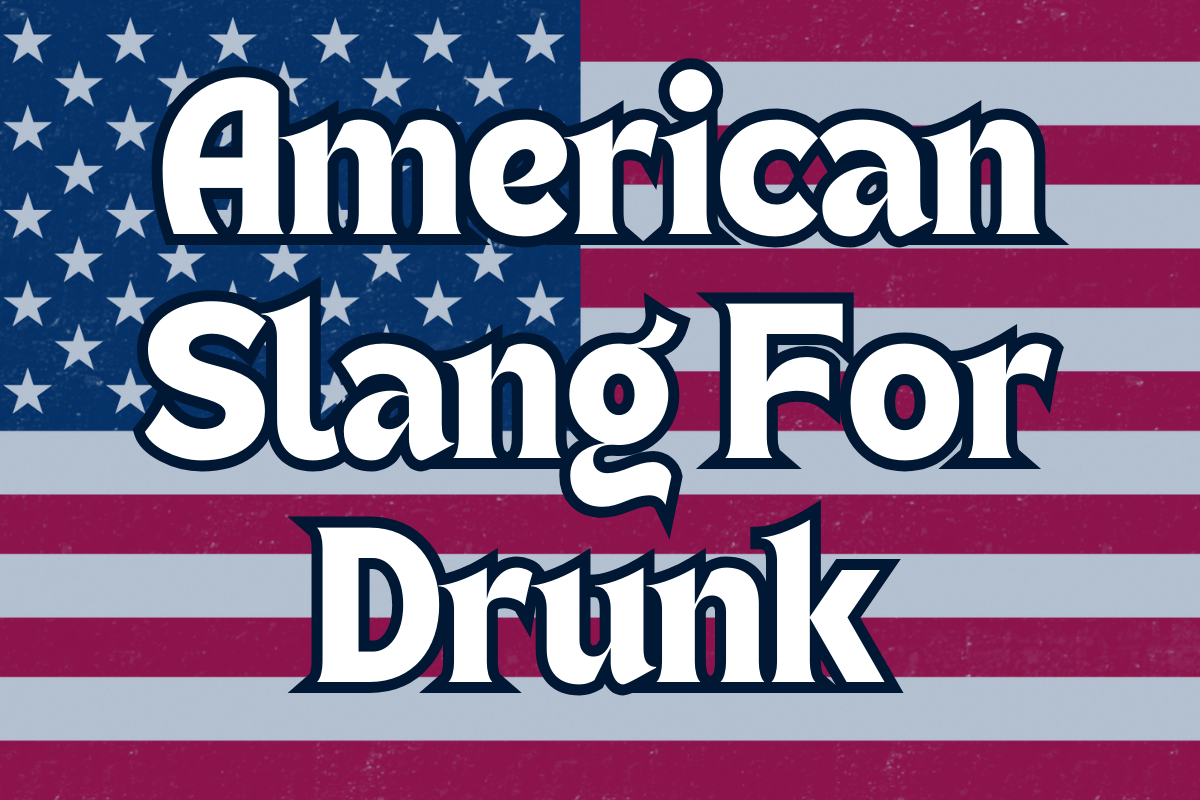
American Slang For Drunk
Adrip
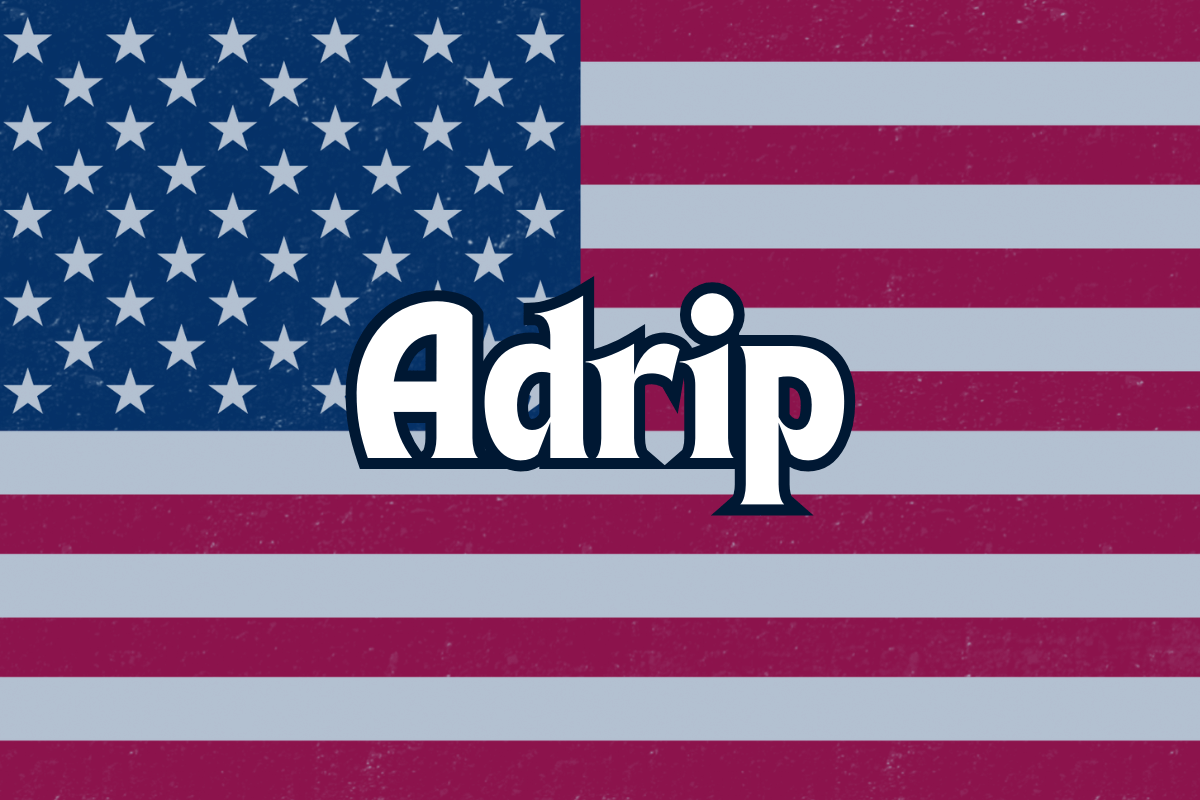
“Adrip” is an uncommon but occasionally heard American slang term for being heavily intoxicated.
The term plays on the imagery of someone being metaphorically ‘dripping’ with alcohol, suggesting an overwhelming level of drunkenness.
While not as mainstream as terms like “wasted” or “plowed,” it has appeared in some regional dialects and informal speech.
Examples in sentences:
- “He was completely adrip after those tequila shots.”
- “You don’t want to see Mark when he’s adrip—it’s a disaster.”
- “She stumbled out of the bar, adrip and giggling uncontrollably.”
- “I don’t remember much from last night, but I was definitely adrip.”
- “The party got out of hand when half the guests were adrip by midnight.”
As Drunk as a Boiled Owl
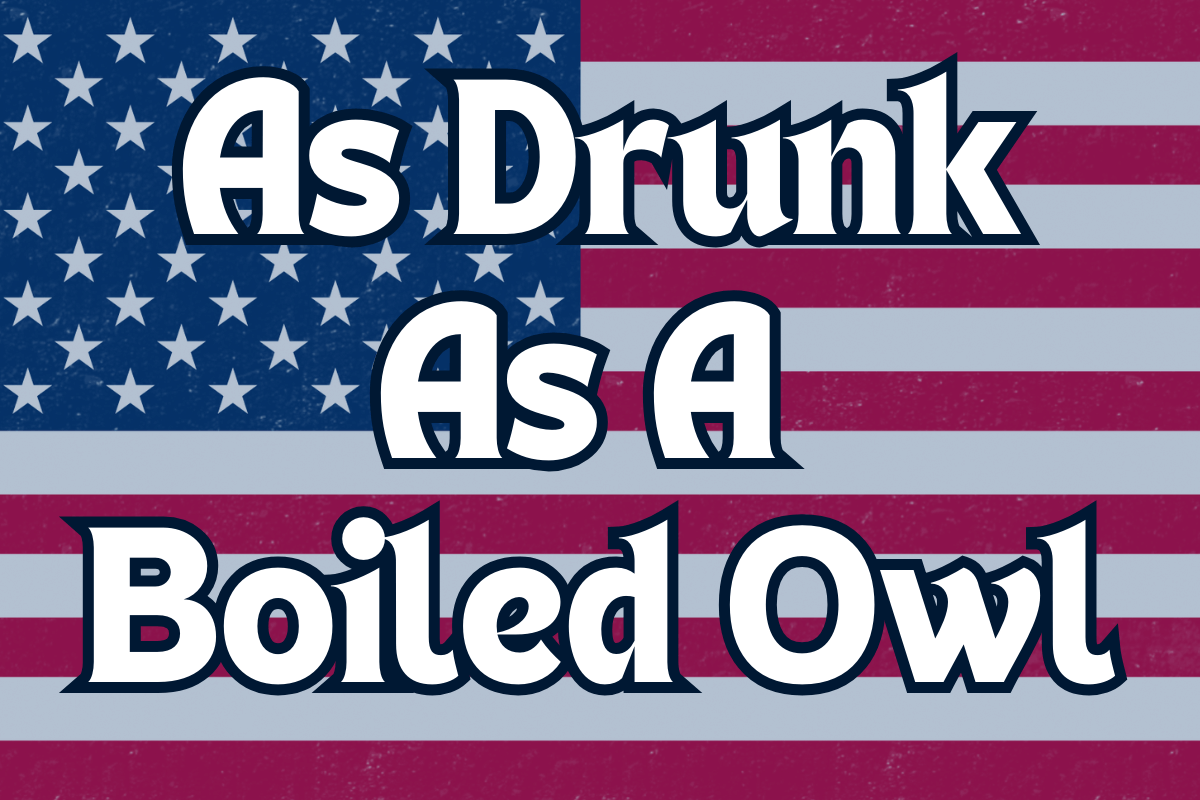
“As drunk as a boiled owl” is a colorful American slang phrase that dates back to the 19th century.
Despite the bizarre imagery, there’s no real connection between owls and drunkenness—this phrase likely gained popularity because of its humorous and nonsensical nature.
Some sources suggest it may have originated from an older expression, “as drunk as Abel Boyle,” which was misheard or altered over time.
Regardless of its origins, it paints a vivid picture of someone who is absolutely plastered.
Examples in sentences:
- “By the end of the night, he was as drunk as a boiled owl.”
- “I don’t remember getting home—I must have been as drunk as a boiled owl.”
- “After three bottles of whiskey, he was officially as drunk as a boiled owl.”
- “You could tell she was as drunk as a boiled owl when she started singing on the table.”
- “I tried to stay sober, but after that last round, I was as drunk as a boiled owl.”
Blitzed
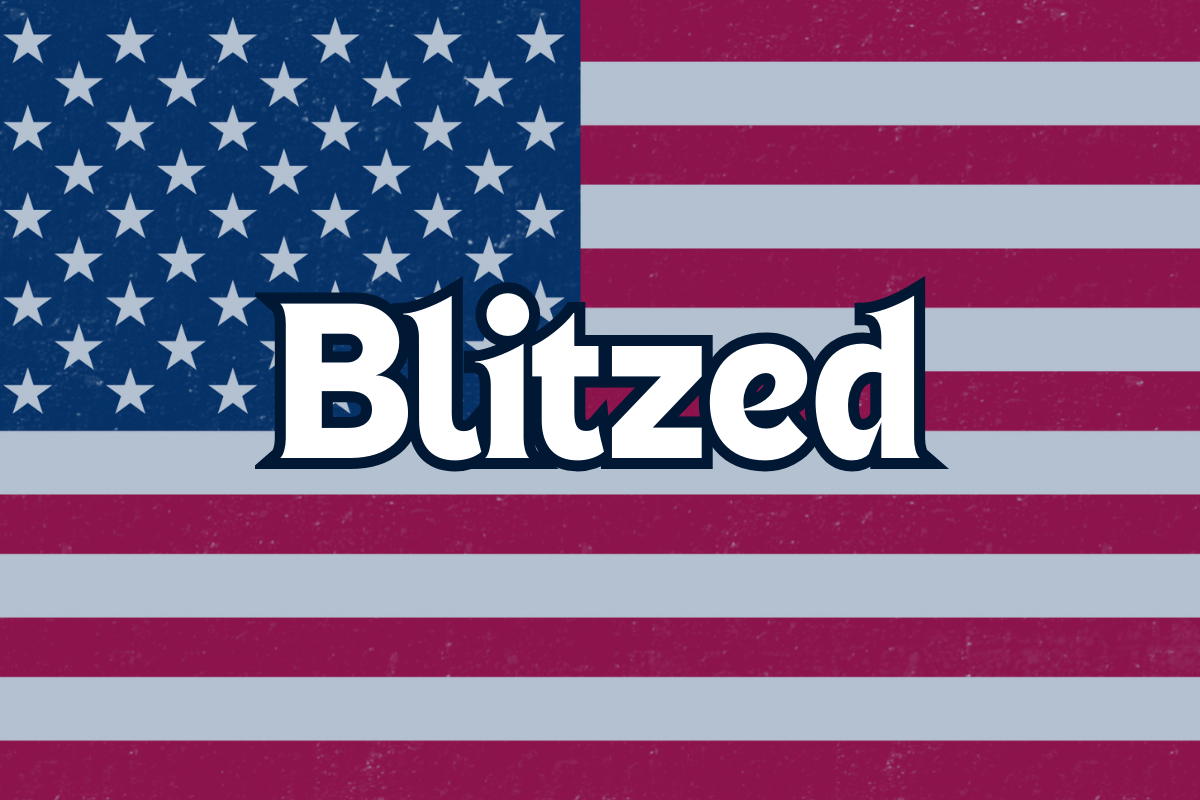
“Blitzed” is a popular American slang term for being very drunk.
The word comes from the German term “Blitz,” meaning lightning, and was originally associated with fast, overwhelming military attacks (like the Blitzkrieg in World War II).
Over time, it evolved into a slang term meaning someone is completely intoxicated, as if they had been “hit” by alcohol like a lightning strike.
It’s a common, informal way to describe someone who has had way too much to drink.
Examples in sentences:
- “After five shots of tequila, he was absolutely blitzed.”
- “We got so blitzed last night, I barely remember getting home.”
- “She was blitzed by midnight, dancing on tables and singing off-key.”
- “I can’t go out drinking again—I was blitzed all weekend!”
- “By the time the party ended, everyone was totally blitzed.”
Clobbered
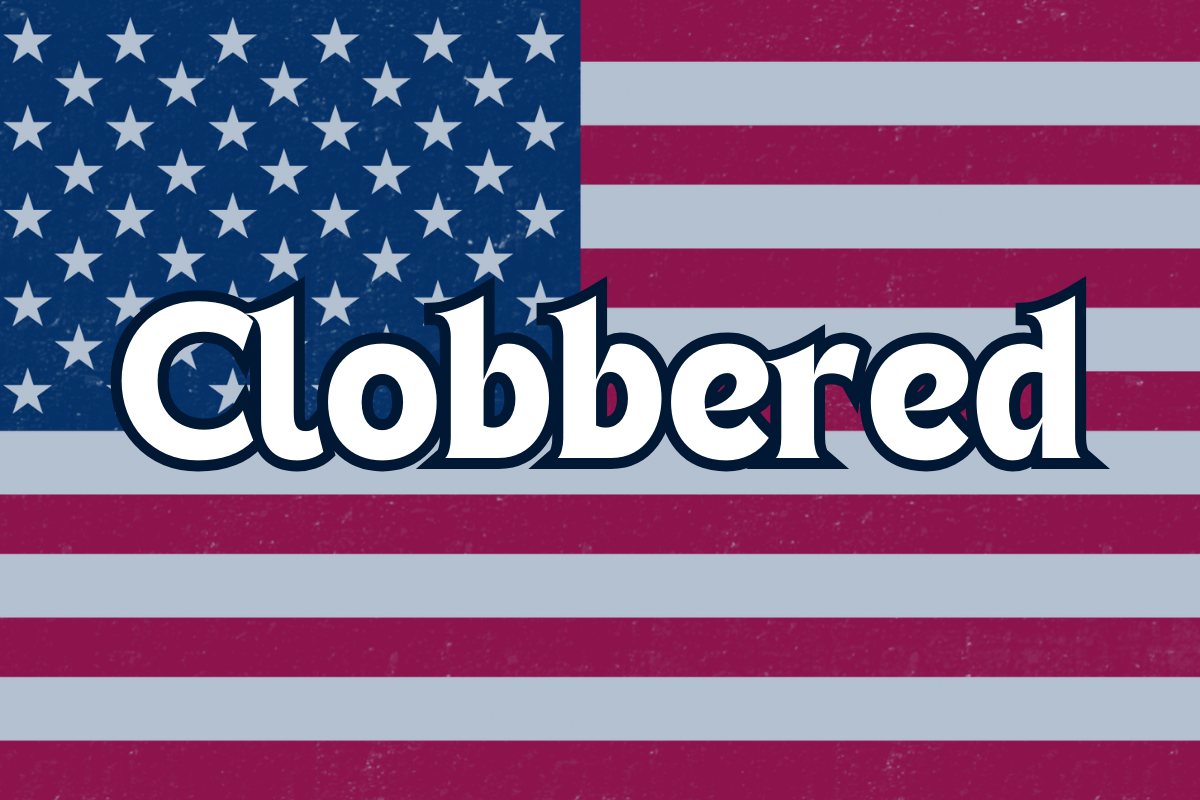
“Clobbered” is an American slang term used to describe someone who is so intoxicated that they appear completely overwhelmed by alcohol.
The term suggests that the person has been figuratively “clobbered” by drinks, leaving them disoriented and unable to function normally.
It’s a vivid, casual expression that captures the messy, uncontrolled state of heavy intoxication.
Examples in sentences:
- “He was so clobbered last night, he could barely stand up.”
- “After the party, everyone was completely clobbered.”
- “I got clobbered at the bar and ended up sleeping on a couch.”
- “Don’t drink too much, or you’ll be clobbered by morning.”
- “She warned him not to get clobbered before his big meeting.”
Hammered
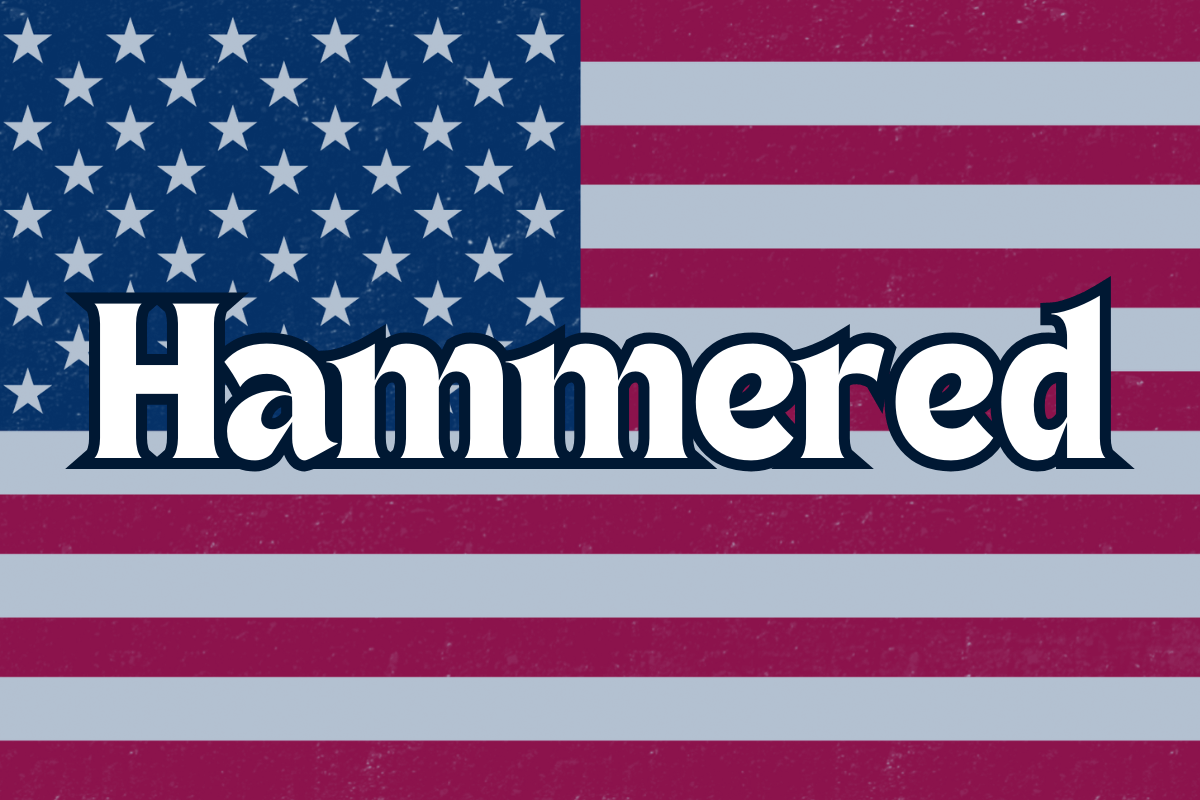
“Hammered” is a popular American slang term used to describe someone who is extremely intoxicated.
The term vividly suggests that the person has been beaten down by alcohol, leaving them disoriented and unable to function normally.
It conveys a sense of complete, overwhelming drunkenness and is commonly used in casual conversation to describe a night of heavy drinking.
Examples in sentences:
- “He was so hammered last night, he couldn’t even walk straight.”
- “After a few too many rounds, the whole crew got hammered.”
- “I promised myself I wouldn’t get hammered at the party.”
- “She ended up completely hammered after all those shots.”
- “They got hammered at the bar and had to call a cab home.”
Plowed
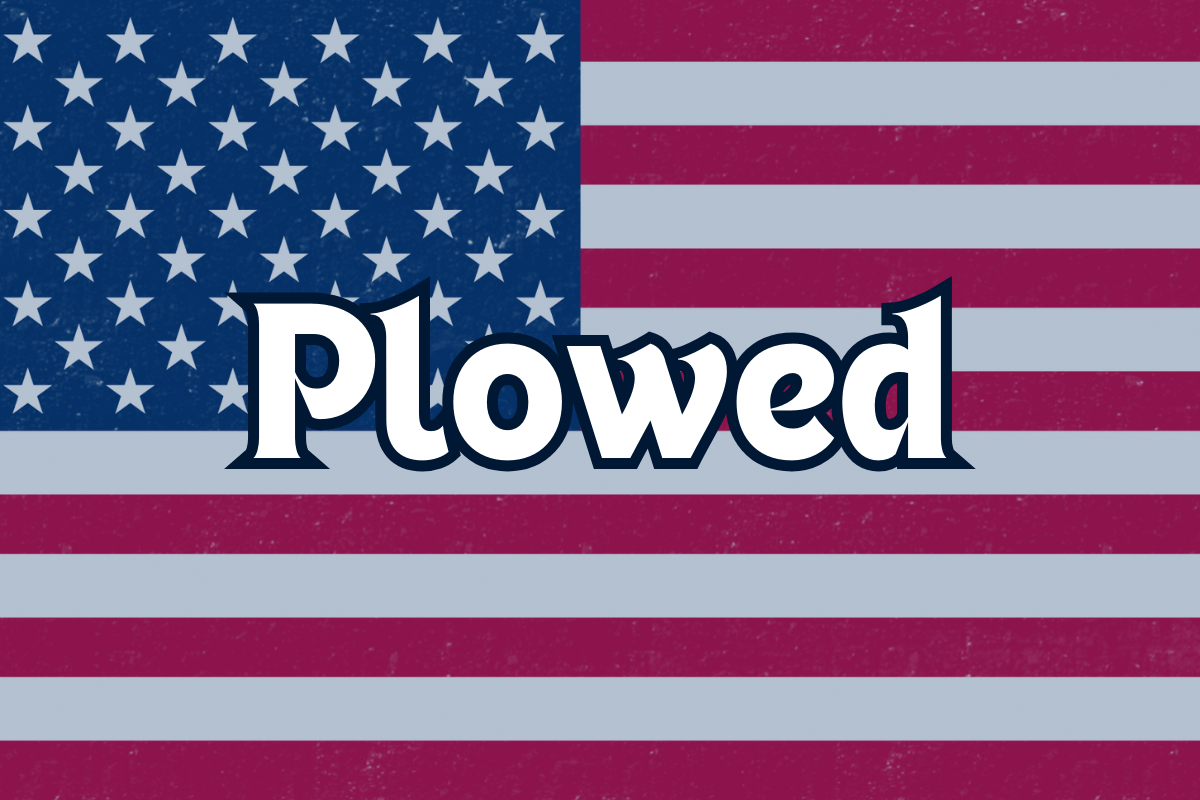
“Plowed” is a commonly used American slang term that describes someone who is so drunk that they appear to have been figuratively flattened or knocked over—like a plow has run over them.
It suggests extreme intoxication and is often used in casual conversation to depict a state of severe inebriation.
The term vividly captures the physical and mental effects of heavy drinking.
Examples in sentences:
- “He got completely plowed at the party last night.”
- “After several rounds of drinks, they were all plowed.”
- “If you drink too fast, you’ll end up plowed before you know it.”
- “She was so plowed she couldn’t even stand up properly.”
- “By the end of the night, everyone was totally plowed.”
Sloshed
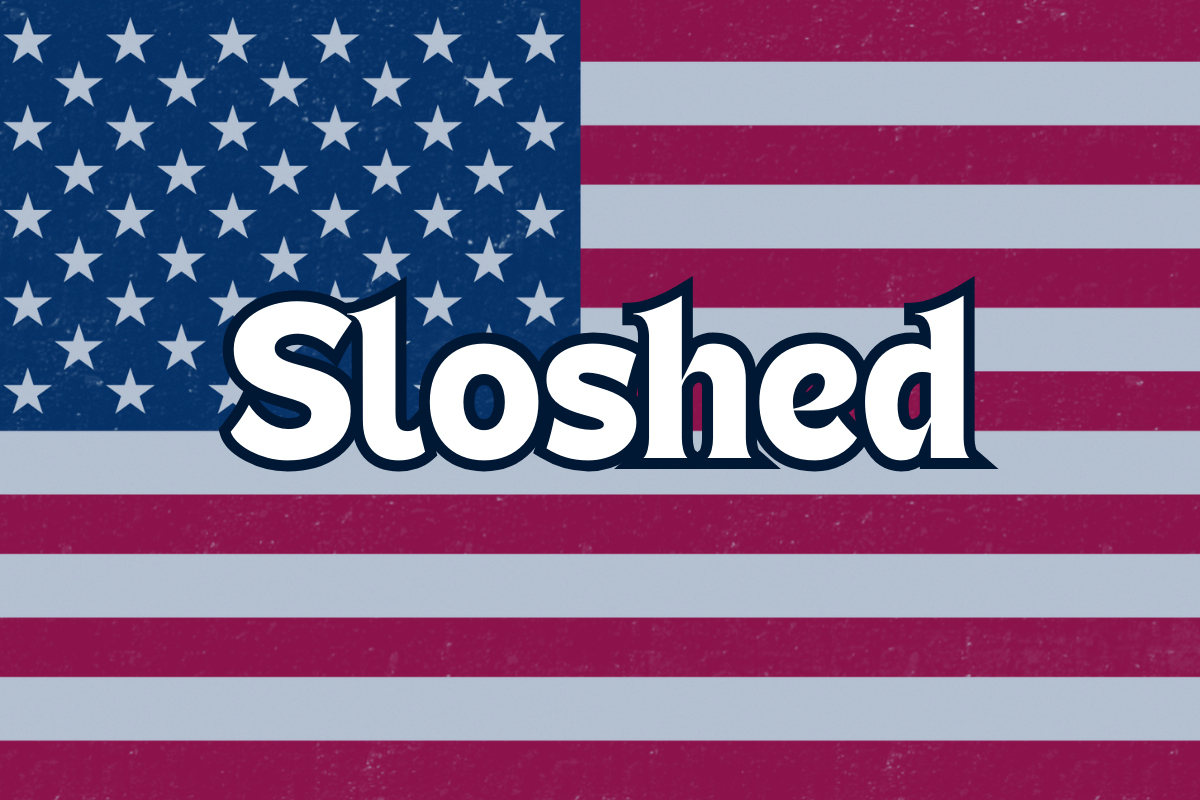
“Sloshed” is a commonly used American slang term to describe someone who is heavily intoxicated.
The word vividly evokes the image of liquid being tossed around, much like the unsteady, uncontrolled movements of a person who is extremely drunk.
It’s a casual and humorous way to refer to a state of severe inebriation, and remains popular in everyday conversation when describing wild nights out.
Examples in sentences:
- “He was so sloshed last night that he couldn’t stand up.”
- “After the party, everyone was completely sloshed.”
- “I got totally sloshed and ended up sleeping on the couch.”
- “She warned him not to get too sloshed before the meeting.”
- “They spent the evening getting sloshed and laughing non-stop.”
Souped-up
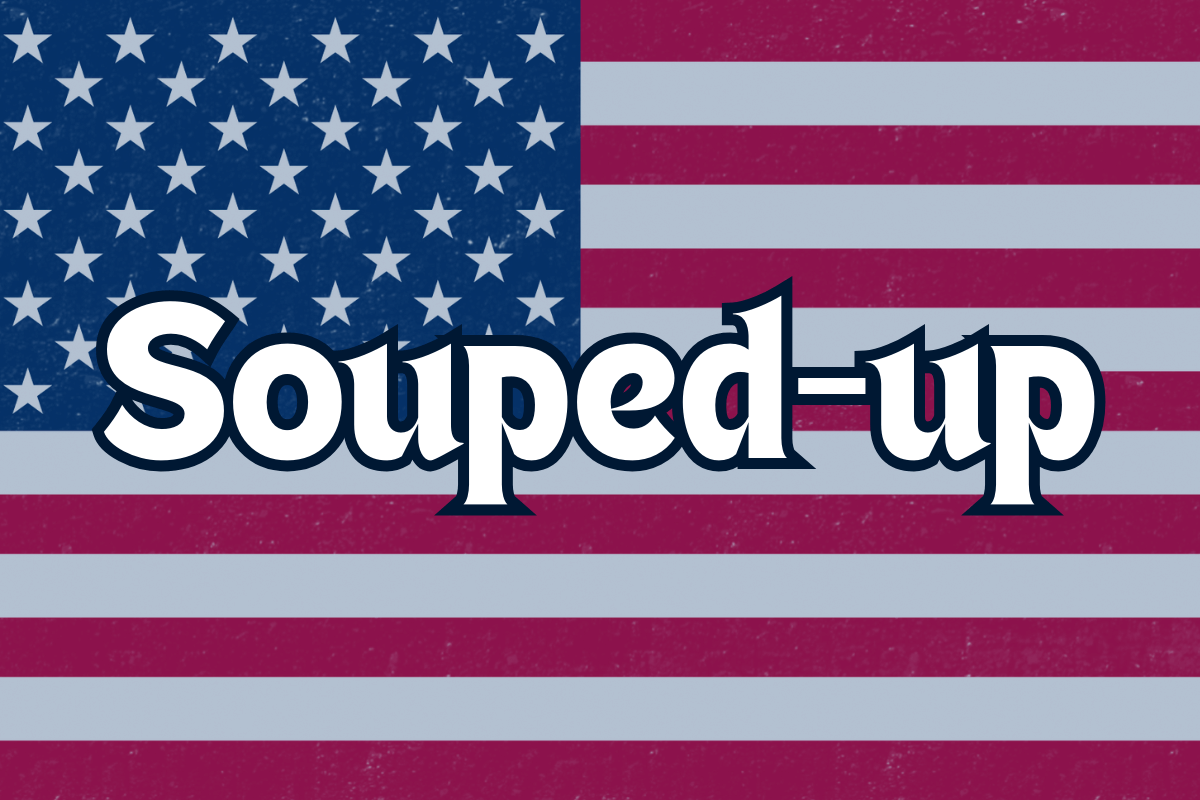
“Souped-up” is a slang term that originated in the US Navy and came to describe someone who is very drunk.
It evokes the image of an engine or machine running at high power—reflected in the way alcohol can overcharge a person’s senses.
In casual conversation, it conveys that someone has had too much to drink and is acting with excess energy or recklessness.
Although its usage has diminished outside naval contexts, it remains a colorful example of American slang for extreme intoxication.
Examples in sentences:
- “He got so souped-up last night, he could barely keep his balance.”
- “After the party, everyone was totally souped-up and ready for more.”
- “She warned him not to get too souped-up before the big meeting.”
- “They were all souped-up by the end of the night, laughing and dancing.”
- “You can tell he’s had a few too many drinks—he’s completely souped-up!”
Tore up
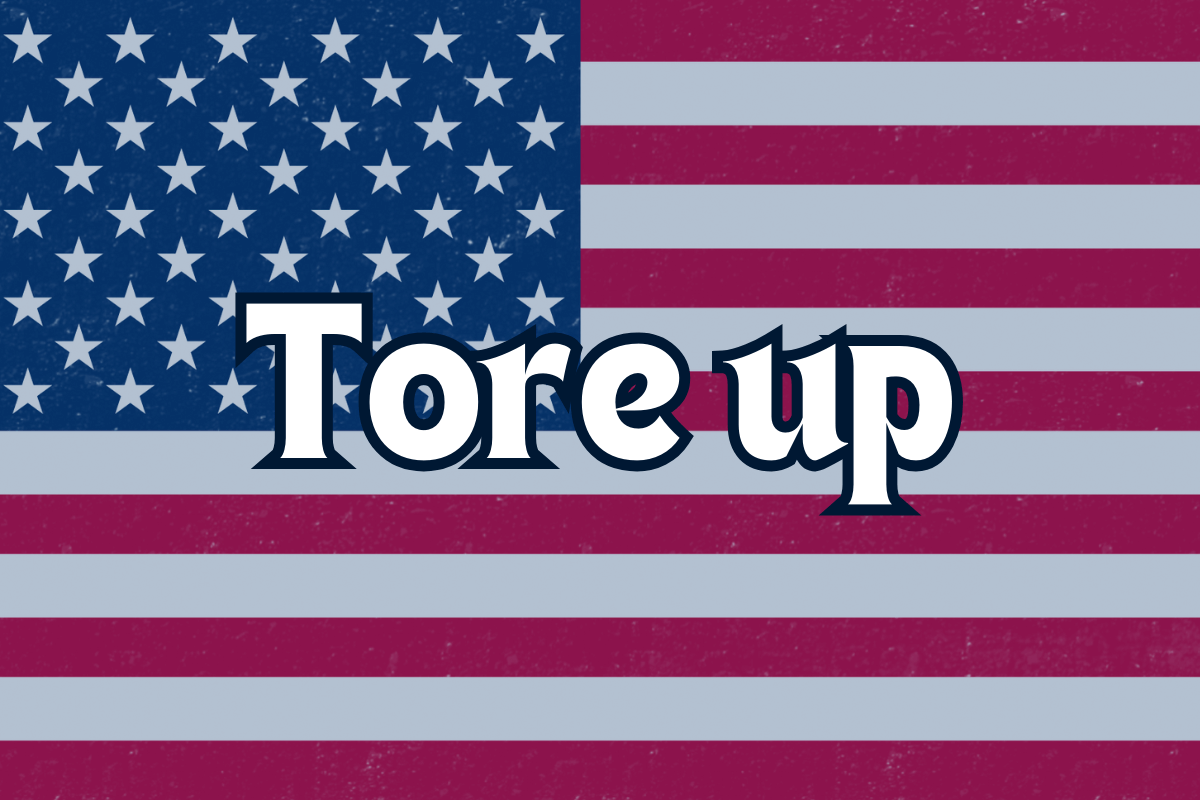
“Tore up” was a popular expression in the 1950s to describe a state of extreme intoxication.
When someone was “tore up,” it meant they were so drunk that their faculties were in disarray, as if the alcohol had figuratively torn them apart.
This term was used in casual conversation to emphasize just how out-of-control a person could be after a night of heavy drinking.
Examples in sentences:
- “He got totally tore up at the party last night.”
- “After too many drinks, she was completely tore up.”
- “I warned him not to drink too much, or he’d end up tore up.”
- “By the time the night ended, everyone was absolutely tore up.”
- “He was so tore up, he couldn’t even remember his own name.”
Wasted
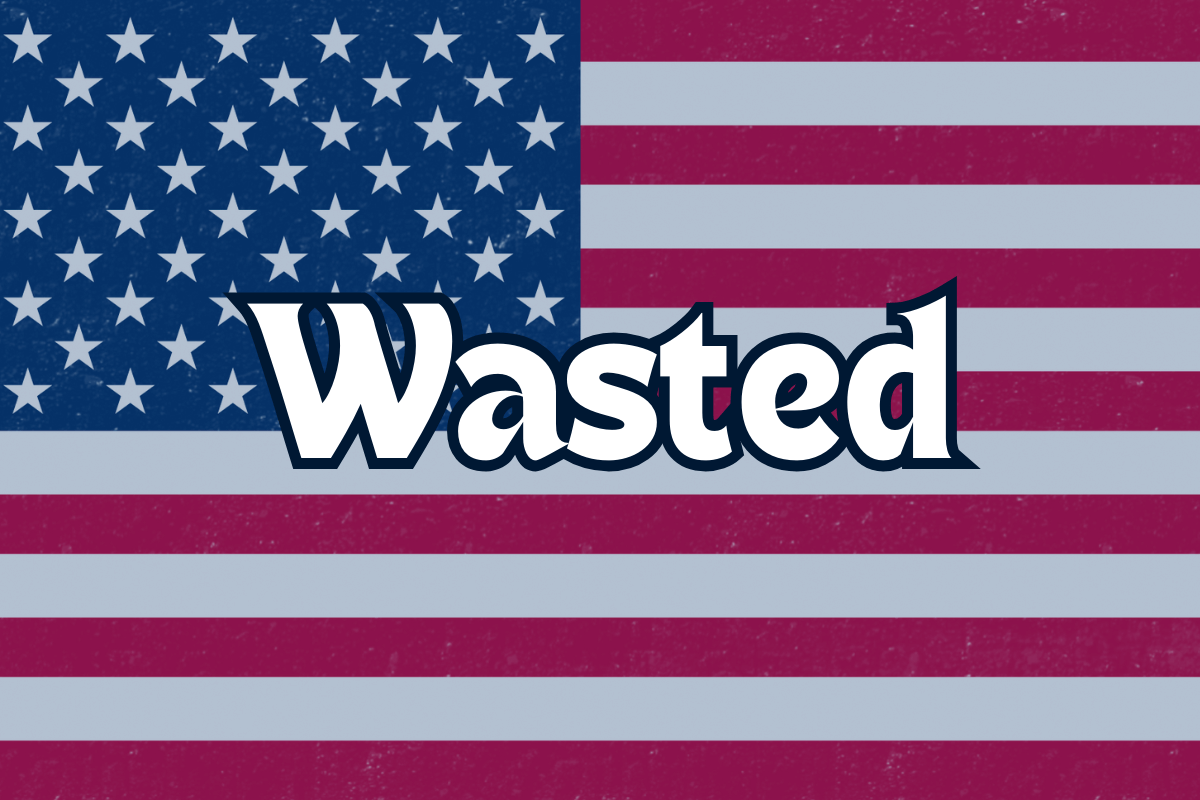
“Wasted” is perhaps the most common American slang term for being extremely intoxicated.
In the 1950s, it was widely used across the country to describe someone who had consumed so much alcohol that they were unable to function normally.
The term conveys a sense of complete inebriation and is still recognized in modern speech.
Whether used casually or in more dramatic contexts, “wasted” remains a go-to word for describing a state of total drunkenness.
Examples in sentences:
- “He was completely wasted after the party last night.”
- “I got so wasted, I don’t even remember how I got home.”
- “She admitted she was wasted and needed to sit down.”
- “After a few rounds, the whole crew was wasted.”
- “You can tell he’s wasted by the way he’s slurring his words.”

